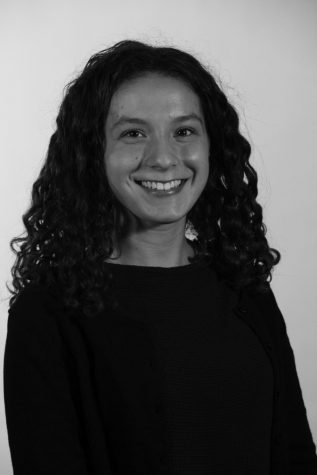Being a Parent and a Teacher in Cambridge: A Look at the CPS Family Leave Policy
June 19, 2018
In any given year, there are sure to be teachers in the Cambridge Public Schools who face a difficult dilemma: How long can they afford to stay home with their newborn babies? By a federal law called the Family and Medical Leave Act, all employees who have worked for an employer for at least a year have the right to take twelve weeks of leave and still have their job when they return. However, federal law does not require that employees be paid during this time, posing a financial challenge for many teachers.
Ms. Maloney, an English teacher at CRLS, told the Register Forum that “We’re lucky that Cambridge interprets twelve weeks to be 60 school days.” Because of this interpretation, when Ms. Maloney had her first child she was able to take six weeks of unpaid maternity leave in the spring and six weeks of maternity in the fall, with the summer in between, something she said was “unique.”
In the Cambridge Public School District (CPSD), there are ways for teachers to be paid when they take family leave. However, there is no official paid family leave policy. Most teachers who would like their leave to be paid use accumulated sick days to cover the time. Every year, teachers get 15 sick days which roll over to the next year. Therefore, it is possible for teachers to accumulate enough sick days to get their entire leave paid. However, teachers who are having their second child or are very new to the school can have trouble accumulating enough sick days to cover their leave.
This year, there is a new parental leave policy in place in CPSD that is a partial solution to the problem. The Massachusetts Pregnant Workers Fairness Act, signed into law by Governor Charlie Baker in 2017, says that childbirth is a form of disability. This means the district will now allow women who physically give birth to their children to access the union’s sick bank for eight calendar weeks after they have used up all of their sick days. The sick bank is an allotment of 400 sick days that teachers can apply to use if they run out of their own days. However, unless a teacher has worked for the district for eleven or more years, they must go on leave for a few days (depending on how long they’ve worked in CPSD) unpaid before they can access the sick bank. Dan Monahan, the president of the union, noted in an interview with the Register Forum that the people who really benefit from the policy are new employees, as they haven’t had time to gather sick days.
However, this solution only partially addresses the problem. One limitation of this specific policy is that it does not help any teacher who is not physically giving birth to their child (i.e. fathers or parents who adopt). Another limitation of this policy is that it does not take into consideration the fact that after a teacher returns from leave, they may still need to take days to stay home with their babies if they get sick.
In addition, this policy doesn’t consider the fact that many parents are not comfortable leaving their babies when they are eight weeks old. Ms. Maloney, who is pregnant with her second child, commented, “I also feel nervous about putting an eight-week-old baby in daycare, whereas last time my son was four-and-a-half months. I’m nervous about having to do that as well.” While she could chose to take the other four weeks that are guaranteed by FMLA unpaid, having to give up money to spend time with a newborn “is a financial hardship for my family.”
To address the limitations of the current policy, Ms. Maloney said to the Register Forum, “My ideal [policy] would be you get your sixty school days and it’s paid. Like, it’s just paid: It doesn’t matter how much sick time you have.”
In an email to the Register Forum, Ms. Leonard, a math teacher at CRLS, wrote, “I think it should be a basic human right to have health care, sick leave and family leave. Cambridge Public Schools should be a community where educators and families work together to support the young people of Cambridge.” She continued, noting that “part of ensuring high quality education is also taking care of employees. When you feel supported and sustained, you can work that much harder for the benefit of the community.”
Ms. Leonard concluded, referring to her previous pregnancy, “It cost me over 20,000 dollars the last time. It’s not an insignificant amount of money. And on top of the childcare costs and everything when you get back, [CPS] make it tough to be a working parent in the city.”










